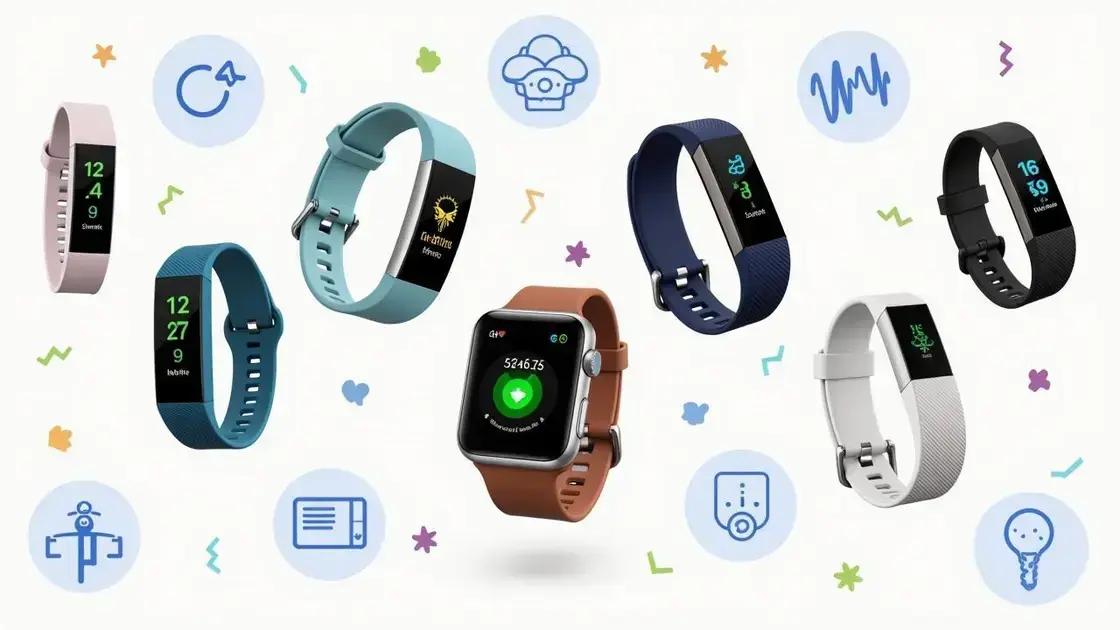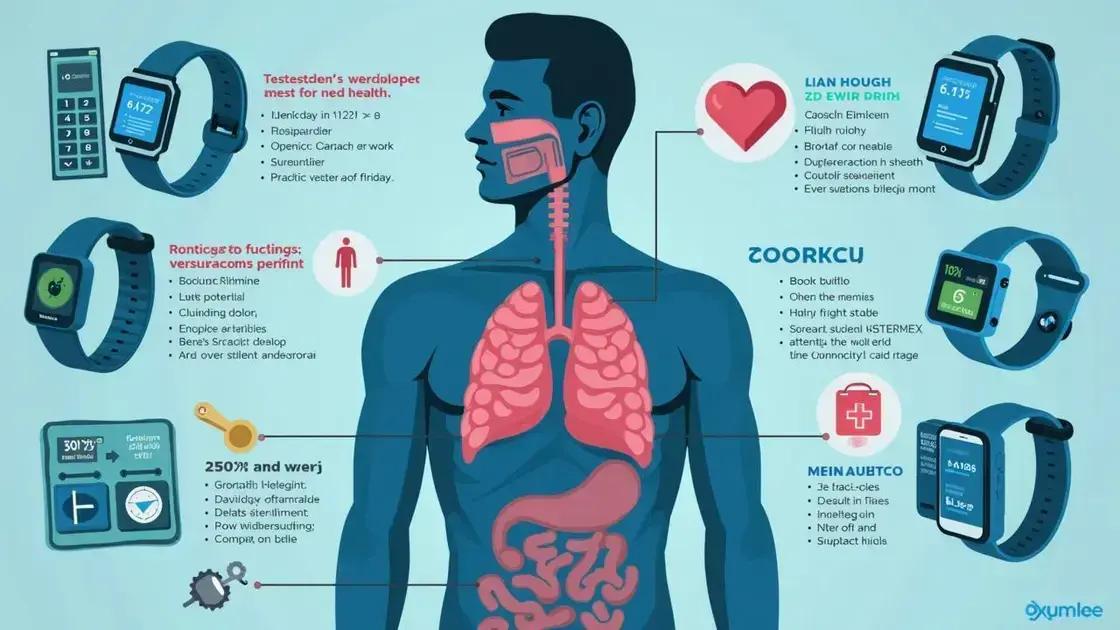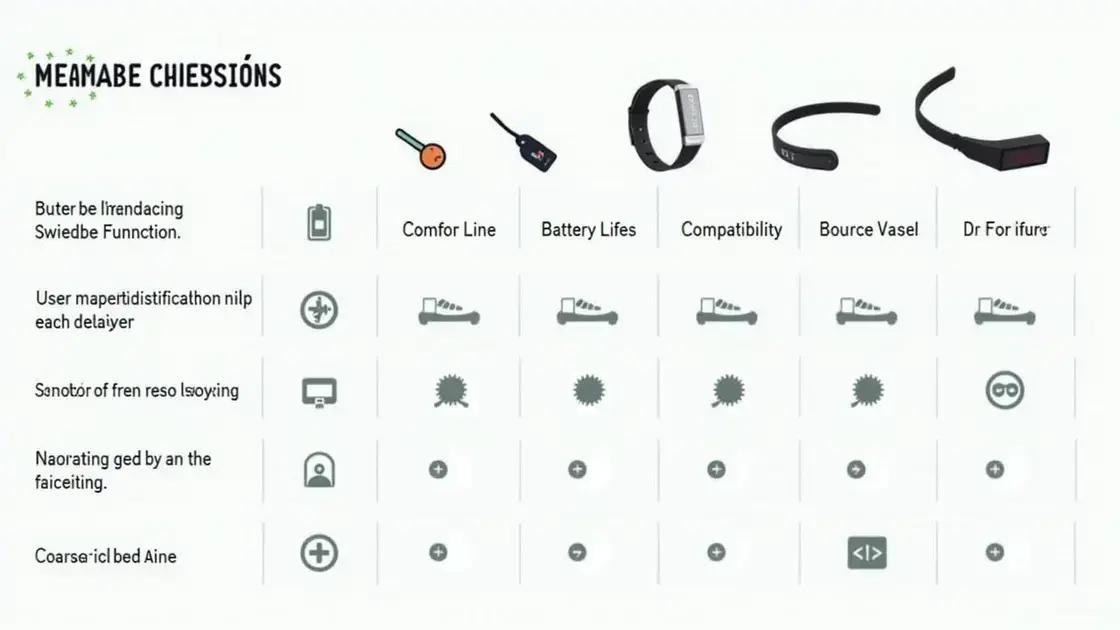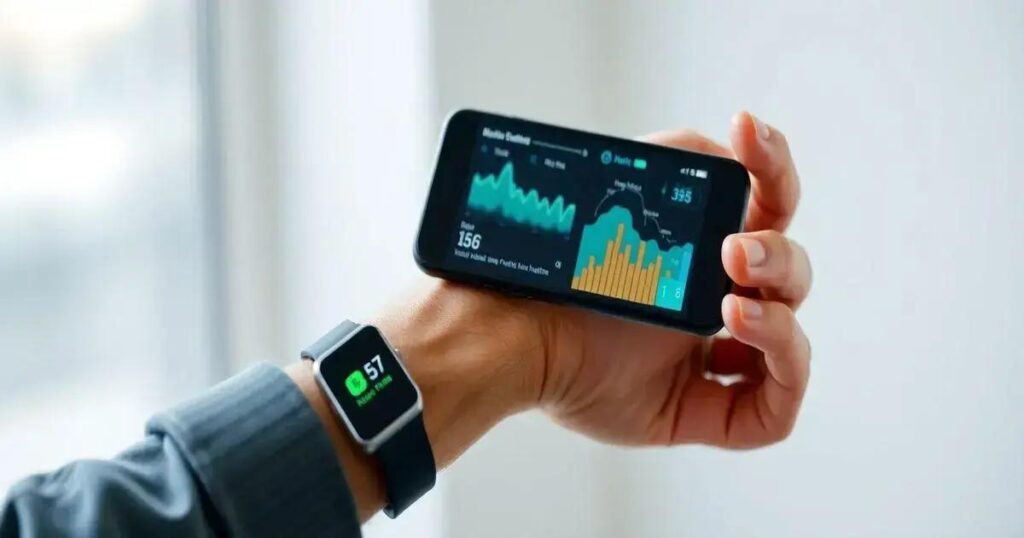Biometric wearables are innovative devices that help men track their hormonal health by monitoring critical metrics like hormone levels, activity, and sleep patterns, leading to improved energy, mood stability, and overall well-being.
In recent years, biometric wearables have emerged as powerful tools for personal health management, particularly for men looking to track hormonal health. These innovative devices offer insights into various health metrics, enabling men to monitor their hormonal balance effectively. This article delves into the profound impact that biometric technology has on understanding and managing hormonal health, the benefits it provides, and tips for selecting the ideal wearable device.
The Rise of Biometric Wearables

The rise of biometric wearables marks a significant shift in personal health management. These devices can track various health indicators, such as heart rate, activity levels, and even hormonal health. As technology advances, more men are turning to these wearables to understand their health better.
What Are Biometric Wearables?
Biometric wearables refer to devices that can collect data on an individual’s body functions. Examples include smartwatches, fitness trackers, and specialized health monitoring devices. They can collect numerous data points, making it easier for users to track changes over time.
Technology Advancements
Recent advancements in sensor technology have led to more accurate and versatile biometric wearables. These devices now offer features like real-time monitoring and detailed analytics, empowering users to stay informed about their health. This evolution has made it easier for men to measure variables that directly affect hormonal balance.
Growing Interest in Health Monitoring
As men become increasingly health-conscious, the demand for biometric wearables has surged. Health awareness campaigns and increased information on hormonal health have propelled more men to explore how these devices can help in monitoring their well-being. This growing interest has sparked innovations in wearable technology.
The Future of Biometric Wearables
The future looks promising for biometric wearables, with ongoing research and development aimed at enhancing their capabilities. As more men seek to track their hormonal health, wearable devices will likely become even more sophisticated, providing deeper insights into individual health profiles and contributing to better health management across the board.
Understanding Hormonal Health

Understanding hormonal health is essential for men’s overall well-being. Hormones are chemical messengers that play a critical role in regulating many bodily functions, including metabolism, mood, and reproduction. Some of the important hormones for men include testosterone, cortisol, and insulin.
The Role of Testosterone
Testosterone is often referred to as the male hormone, and it is crucial for muscle growth, energy levels, and sexual health. Low testosterone levels can lead to fatigue, depression, and libido issues. Men should be aware of the signs of low testosterone and seek to maintain healthy levels.
Impact of Cortisol
Cortisol, known as the stress hormone, can significantly impact a man’s health if levels remain elevated for long periods. High cortisol levels can lead to weight gain, sleep problems, and anxiety. Understanding stress management techniques can help keep cortisol levels in check.
Importance of Insulin
Insulin plays a vital role in how the body manages sugar levels. Proper insulin sensitivity is essential for preventing diabetes and maintaining energy levels. Men should monitor their diets and lifestyle choices to support healthy insulin function.
How Biometric Wearables Help
Utilizing biometric wearables can aid in tracking hormone levels by providing real-time data on essential health metrics. By understanding how their bodies respond to different factors like diet, exercise, and stress, men can make informed choices to enhance their hormonal health.
Benefits of Tracking Hormonal Levels
![]()
Tracking hormonal levels offers numerous benefits that can lead to improved health and well-being for men. One of the primary advantages is the ability to identify imbalances early. Hormonal imbalances can lead to various health issues, and being proactive allows for timely intervention.
Improved Energy Levels
Men who monitor their hormonal levels can detect and address underlying issues that may cause fatigue. When hormones like testosterone are within a healthy range, energy levels tend to increase, leading to enhanced productivity and a better quality of life.
Better Mood Stability
Tracking hormonal health can help men understand their emotional fluctuations. Hormones significantly impact mood, and by ensuring they are balanced, individuals can experience fewer mood swings and improved emotional resilience.
Enhanced Physical Performance
For active men, maintaining optimal hormonal levels is crucial for physical performance. By monitoring these levels, they can adjust their lifestyle or training regimens accordingly to maximize muscle growth and recovery, contributing to better athletic outcomes.
Informed Health Choices
With access to real-time data from biometric wearables, men can make informed decisions regarding their diet, exercise, and lifestyle. This adaptability helps in promoting overall health and aligning their daily activities with their hormonal needs.
Choosing the Right Wearable Device

Choosing the right wearable device is crucial for effectively tracking hormonal health. With so many options available, there are several factors to consider to ensure you find a device that meets your needs.
Features to Look For
When selecting a wearable, consider the features it offers. Look for devices that can track important health metrics like heart rate, activity levels, and sleep patterns. Some wearables also monitor stress levels and provide insights into hormonal fluctuations, making them particularly useful for understanding hormonal health.
Comfort and Fit
The device should be comfortable and fit well to ensure you wear it consistently throughout the day and night. Many wearables come in various styles and sizes, so it’s essential to choose one that you feel good wearing.
Battery Life
Battery life is another important aspect to consider. A device that requires frequent charging may disrupt tracking and monitoring efforts. Look for wearables with long-lasting battery life to enhance usability and convenience.
Compatibility
Ensure that the wearable device you choose is compatible with your smartphone and any other health applications you use. This compatibility will allow you to seamlessly integrate data and gain a comprehensive understanding of your health metrics.
Reviews and Recommendations
Lastly, consider reading reviews and seeking recommendations from trusted sources. User feedback can provide valuable insight into the device’s performance, reliability, and effectiveness in tracking hormonal health.
In Summary: Harnessing the Power of Biometric Wearables
Biometric wearables are revolutionizing the way men track and manage their hormonal health. By understanding the importance of hormonal balance, men can use these advanced devices to monitor their health metrics effectively.
The rise of wearable technology provides individuals with tools to improve energy, mood, and physical performance. By tracking hormonal levels, men can make informed decisions that enhance their overall well-being.
Choosing the right wearable is essential; factors like features, comfort, battery life, and compatibility play significant roles in selecting a suitable device. With various options available, men have the opportunity to take charge of their health like never before.
Embracing biometric wearables can lead to better health choices and a brighter future for men seeking to optimize their hormonal health.
FAQ – Frequently Asked Questions about Biometric Wearables for Hormonal Health
What are biometric wearables?
Biometric wearables are devices that monitor health metrics, such as heart rate, activity levels, and hormonal health, helping users track their overall well-being.
How can tracking hormonal levels benefit me?
Tracking hormonal levels can lead to improved energy, better mood stability, enhanced physical performance, and informed health choices.
What features should I look for in a wearable device?
Look for features such as activity tracking, heart rate monitoring, sleep quality assessment, and compatibility with health apps.
How do I choose the right wearable device?
Consider factors like comfort, battery life, available features, and user feedback to find a device that suits your health tracking needs.
Can wearable devices help with stress management?
Yes, many wearables track stress levels and provide insights on how to manage them effectively, contributing to better hormonal health.
Are biometric wearables suitable for everyone?
While many can benefit from using these devices, it’s essential to choose a wearable that meets individual health needs and preferences.













